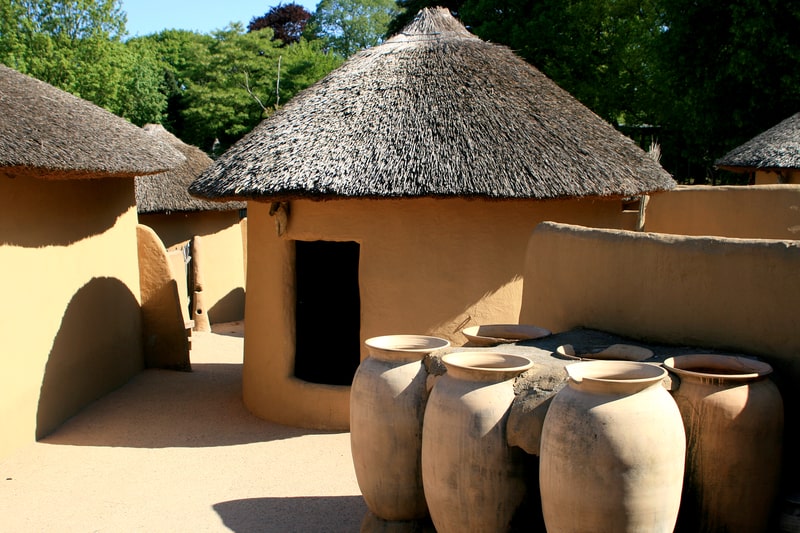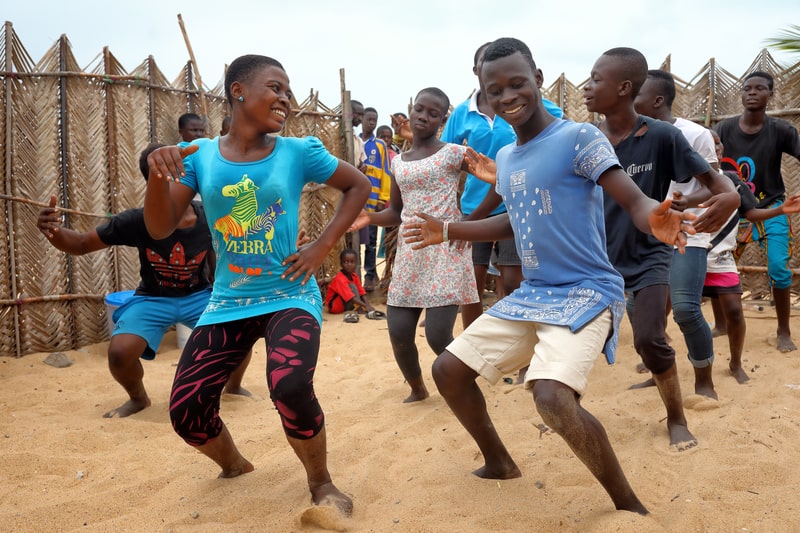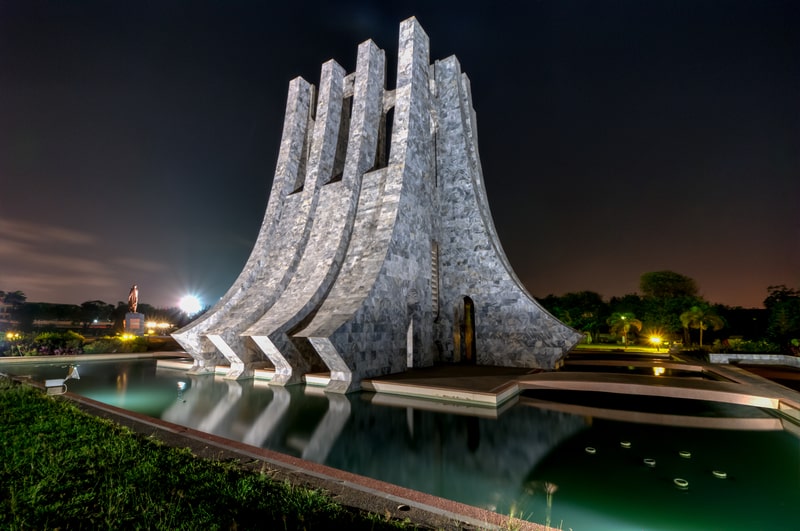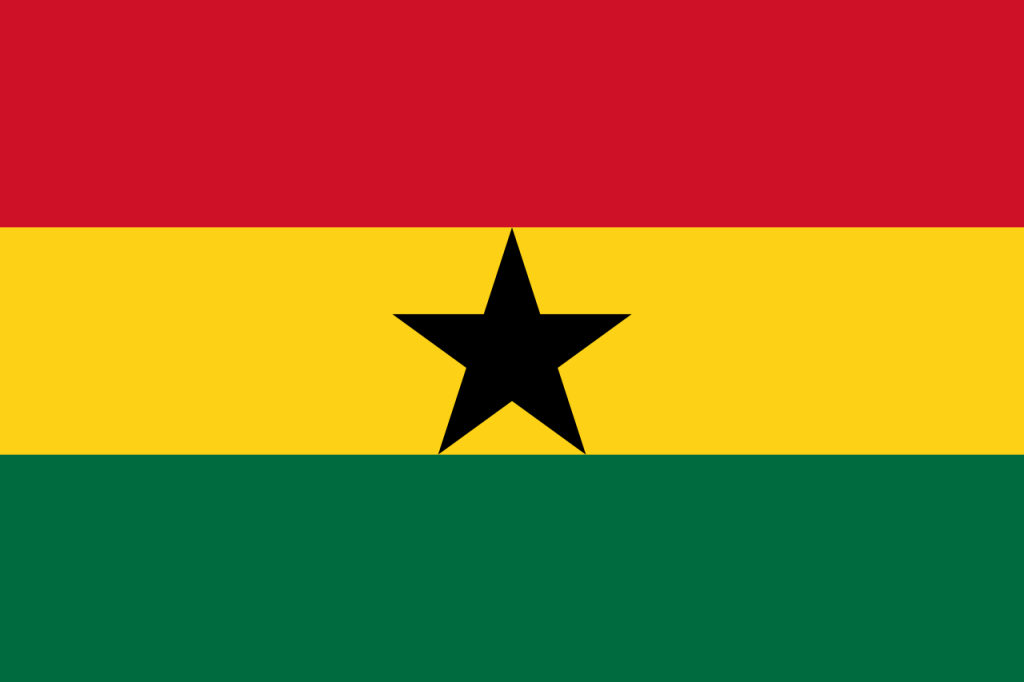Last updated on October 30th, 2022
Ghana, officially the Republic of Ghana, is a country located along the Gulf of Guinea and the Atlantic Ocean, in the subregion of West Africa. It has an area of 238,533 square km. Accra is its capital and largest city. Ghana’s official language is English. Ghana cedi (GHS) is its official currency. It has three bordering countries that are Côte d’Ivoire, Burkina Faso, and Togo.
The word Ghana means “Warrior King” in the Soninke language. With these 50 interesting facts about Ghana, let’s learn more about its: history, culture, geography, people, economy, food, traditions and more.
Facts about culture and tradition
1. Culture and tradition of the Ghanaian people of West Africa are mixed especially due to the fact that the country boasts of several tribes that uphold their different cultural orientations as well as their varied ways of life. In as much as there is a multiplicity of different ethnic groups, the culture is overall unified and as such, Ghana has enjoyed political stability in the region even after the post-Colonial era.
2. Traditionally, Ghana as a nation was divided into three different castes namely, royals, commoners, and slaves. Up to date, the traditional class stratification is still recognized although slavery is not prominent in today’s Ghana.
3. Polygamy is legal and people do not have a problem with the polygamous families in so far as the breadwinner can sufficiently provide for the families. However, marrying more than one wife is most often than not a reserve for the wealthier as well as powerful members of the society.

4. Traditional practices on widow inheritance are still prominently practiced in that a widow is expected to be married by a living brother of the late husband and as such assume full responsibility for the children left behind as well as his new wife.
5. Generally, Ghanaian culture lays more emphasis on being hospitable to everyone in the society, practicing good manners in every setting as well as respect for everyone.
6. In as much as Ghanaian culture and traditional beliefs are found to vary from one ethnic group to the other, the Akan religious practices laid more emphasis on ancestral intercession coupled with beliefs in other gods, spirits, and goddesses.
7. With time and changes taking place in the world today, Ghana has not been left behind in that Christianity has influenced most of their traditionally held beliefs and many people today are found to abandon polygamy and practice monogamy which is a widely held belief practiced by Christians.
8. Ghana uses English as their official language which however has a distinctive West African Accent.

9. Akan is the most popularly used language in Ghana after English spoken by nearly 67.1% of the inhabiting people.
10. In Ghana, it is a traditional practice that seasons like harvesting have to be accompanied by ceremonies. Other popularly celebrated ceremonies are like the age ceremonies for girls which take place before marriage or giving birth.
Facts about Ghana’s history
11. Ghana was the first country to gain independence in West Africa from the British people. (West African countries include – 1. Benin, 2. Burkina Faso, 3. the island nation of Cape Verde, 4. Gambia, 5. Ghana, 6. Guinea, 7. Guinea-Bissau, 8. Ivory Coast, 9. Liberia, 10. Mali, 11. Mauritania, 12. Niger, 13. Nigeria, 14. the island of Saint Helena, 15. Senegal, 16. Sierra Leone, 17. São Tomé and Príncipe, and 18. Togo.)
12. The country was named after the medieval empire of West Africa which initially was Wagadugu.
13. Some of the people found living in Ghana today are believed to have ancestors linked with medieval Ghana especially people from the Northern region.
14. Ghana before 1957 was commonly known as the Gold Coast due to the availability of gold along the rivers Ankobra and Volta.
15. The gold availability in the region created vested interests between the British, Portuguese resulting to rivalry in 1482.
Read: Facts about Portugal
16. After the World War II, educated Ghanaians thought it wise that they could seek independence of their country and liberate themselves from oppression.
17. The war veterans were prominent taking forward the struggle for liberation with the notion that colonization was a form of oppression. They began fighting it.

18. In the year 1945, during a meeting in Manchester attended by Kwame Nkrumah, serious concerns on independence were raised giving way to Pan-African consciousness.
19. Ghana had their first constitution in 1946.
20. Kwame Nkrumah became the first president of independent Ghana after they gained independence in 1957.
Related: Interesting facts about Benin
Ghana facts for kids
21. Most Ghanaian people dress in brightly colored clothing preferably made of silk.
22. Ghanaians enjoy dancing, playing the drums and like food.
Flag of Ghana

23. Ghana has enjoyed periods of both war and peace even after independence.
24. The terrain in Ghana is mostly of low-lying plains with notable hills well distributed throughout the country.
25. People in Ghana mostly speak English though other native languages are widely spoken like Akan, Ewe, Ga and Moshi-Dagomba.
26. Ghana has a population growth rate of 2.23% (2022 est.)
27. Literacy levels are high in Ghana with 79% (2022 est.) of the people having the ability to read and write.
28. Religiously, Ghana has Christians and Muslims as well as some other few local religions.
29. Currently, the country has an approximate population of 33,107,275 (2022 est.)
30. Ghana kids mostly pass their time after formal school hours either playing games or dancing.
. . . continue reading on the next page
